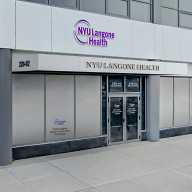Proposed cuts currently in the 2008-2009 New York City executive budget could severely affect the City University of New York (CUNY) and the local community colleges, forcing them to make reductions in various areas.
The proposed cut would take $48.1 million from the City University of New York (CUNY) system.
“While we are facing tough economic times, this is not the time to cut our commitment to investing in our city’s future,” said Queens Councilmember David Weprin, who is also the chair of the Finance Committee. “Turning our backs on CUNY, through these proposed cuts, is not the answer; it will only set back a system that has a long standing record of producing the most competitive students in the region.”
For the community colleges that fall into the CUNY system, there would be a proposed $26 million reduction in the operating budget.
“I was shocked and dismayed because when the economy goes down it makes more sense to provide funding for those areas where people can get retrained and new jobs and add to the tax base,” said Queensborough Community College President Eduardo Marti. “It’s very clear that if these cuts stay in place, which we hope they don’t and I am encouraged they will not, then we’re going to affect a large number of students.”
If the cuts were to go through, Marti said that he believes Queensborough would have to cut their “other than personal services” budget, which includes items such as equipment, by $2 million and their budget to hire part-time faculty by $1 million. He said this could result in larger classes and fewer sessions being offered. Marti also said there was also a possibility that tuition would have to be increased.
Other programs within CUNY that could be hurt by the possible cuts are Safety Net, Peter F. Vallone Scholarships, and the Black Male Initiative.
Last Friday, testimony was given before the New York City Council about the impact of these potential cuts. Marti described it as a “wonderful” meeting and said that he feels confident there will, at the very least, be some sort of restoration.
Marti said that he feels the public should “hold tight until the first week of June and see how real these cuts will be.” However, in the meantime, he said that it is important to let Councilmembers know how important CUNY is and what these cuts could mean to it.
“Enrollment at CUNY is higher than it has been in 35 years,” said Dr. Barbara Bowen, the President of Professional Staff Congress, a union that represents CUNY staff and faculty. “As the economy worsens, even more New Yorkers will turn to CUNY to help them survive the economic downturn. This is the worst time to cut CUNY funding.”





























